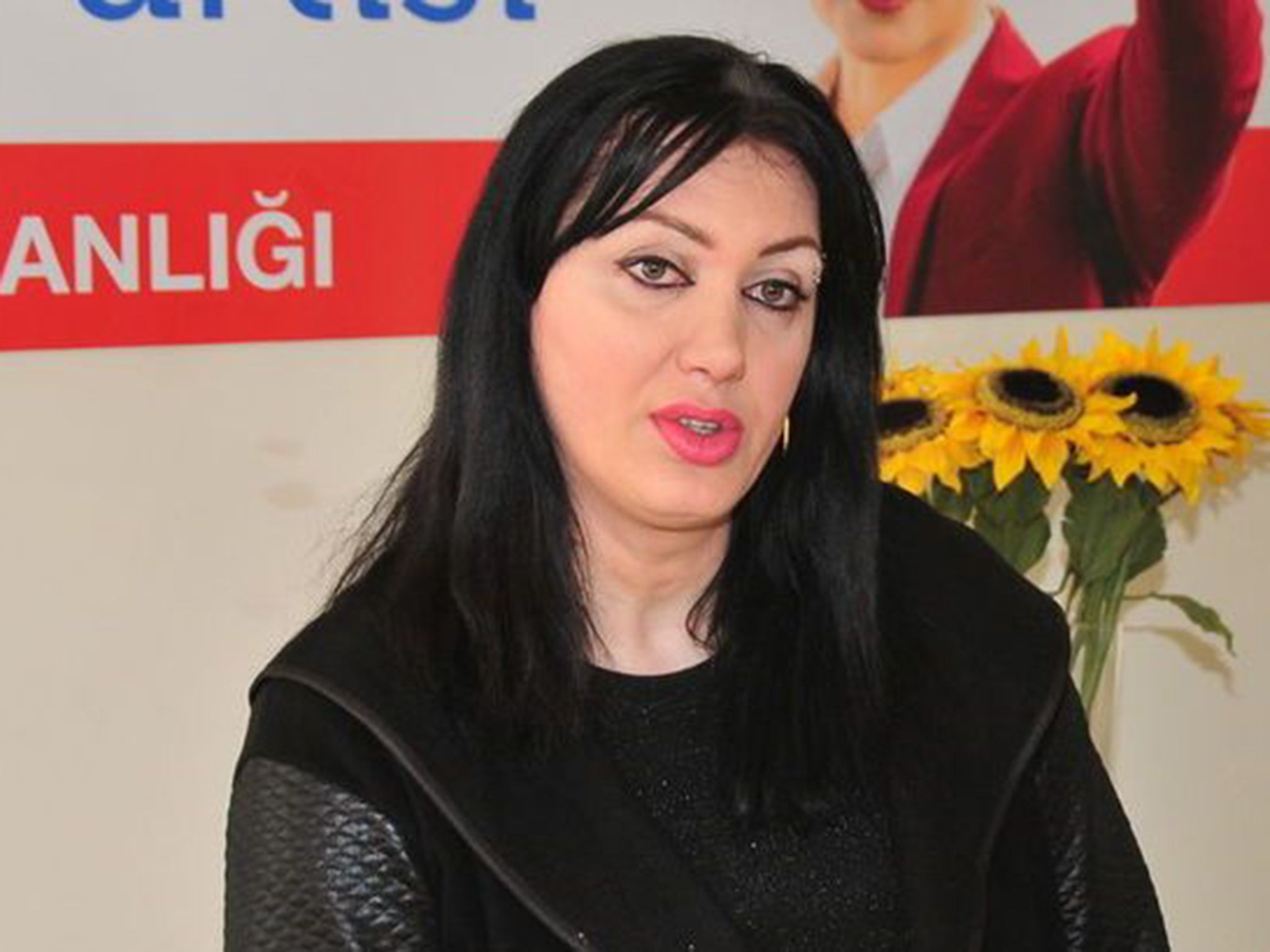When Deva Ozenen was campaigning on the streets of Izmir last month, a curious passer-by picked up some of her leaflets. Eager to win a voter, she began to explain her policies – but as soon as the woman heard Ms Ozenen’s deep voice, she threw the leaflets in her face, cursing and screaming as she walked away.
Others laugh at her when she delivers a speech, and every day her voicemail and email inbox fill up with threats. But, despite the risks she faces, Ms Ozenen is determined to make history: if she succeeds at next month’s parliamentary elections, set for 7 June, she will become Turkey’s first transgender MP.
Ms Ozenen hopes to give a voice to the country’s LGBT (lesbian, gay, bisexual and transgender) rights movement and fight discrimination amid the country’s growing political conservatism. “If we are waiting for Turkish society to get ready for us, we’ll wait a long time,” the 37-year-old said. “We are going against the tide. We are trying to get our rights and we don’t care if society is ready for this or not.”
While Turkey is home to a flourishing LGBT community and hosts the biggest gay pride parade in the Muslim world, transgender people face a multitude of obstacles in day-to-day life, from employment to housing. They can legally undergo sex-change operations, but only if preceded by sterilisation. No law exists banning hate crimes or discrimination based on gender identity or sexual orientation, which can make finding work difficult for transgender individuals, and many end up working in the sex industry.
Although she now works as a translator, Ms Ozenen had little choice when she was faced with poverty some years ago and ended up going down that path. Sex work, she said, was like torture for her, and during that time she was kidnapped and also faced beatings.
17 May is the annual International Day Against Homophobia, Transphobia and Biphobia, which was created in 2004 as a “celebration of sexual and gender diversities”. Ahead of the day, the campaign group Transgender Europe released a report claiming that, between 2008 and 2014, there were “more than 1,700 reported killings of transgender and gender- diverse people” around the world. The number of murdered transgender people in Turkey, at 37 according to the group, was the highest total in Europe.
Living in the relatively liberal city of Izmir offered some protection, Ms Ozenen said. There would be danger living in other regions. “If I were in central Anatolia, I would be dead,” she said. “In Kayseri, in eastern Turkey, I would be shot in the first week of my political career. Even walking on the street there, I would be killed.”
Even Izmir can be a dangerous place. Only two weeks ago, a transgender woman was stabbed in the back there, and Ms Ozenen says she is regularly threatened and harassed.
In pictures: LGBT activists protest against 337
Show all 10“I’m discriminated against for being a transsexual and for being lesbian, because even though some people accept me as a transsexual, when they learn that I’m also lesbian they’re shocked,” she said. “And I’m also Christian. I’m accustomed to discrimination and all kinds of insults.”
Ms Ozenen’s goal is to introduce a law specifically banning hate crimes and discrimination based on gender identity.
Encouraged by their role in the 2013 Gezi Park protests – which began in May of that year as a protest to stop the redevelopment of Istanbul’s Taksim Square and Gezi Park and snowballed into nationwide anti-government demonstrations – activists have since created a number of new LGBT organisations. Also, earlier this year, an Istanbul-based group opened Turkey’s first shelter for transgender women.
“We are more and more visible, and more people know what our needs and issues are. But, at the same time, there is an increasing conservatism, which may lead to a backlash against the community,” said Kemal Ordek, a long-time transgender rights activist.
Andrew Gardner, a researcher on Turkey for Amnesty International, said: “LGBTI [LGBT and intersex] rights groups have won victories though their determination and activism, gaining visibility and a degree of acceptance, but the authorities remain reluctant to recognise their rights, and negative stereotyping by public officials and the media remains common.”
LGBT representation is still rare in Turkish politics and the mainstream media, and some people see the burgeoning LGBT movement as a threat to their, and the country’s, conservative values. While a number of LGBT activists work in local politics, there are only four LGBT candidates, including Ms Ozenen, running for the national elections.
As a candidate for the recently founded progressive nationalist party Anadolu, Ms Ozenen acknowledges that she has only a slim chance of passing the 10 per cent threshold to enter parliament, but she believes that she is making a difference nonetheless.
“I am a pioneer. I opened the door. So, in the next elections, maybe there will be more LGBT candidates… It’s a good opportunity for us to become more visible,” she said. “And I will try to get elected next time.”
Subscribe to Independent Premium to bookmark this article
Want to bookmark your favourite articles and stories to read or reference later? Start your Independent Premium subscription today.


Join our commenting forum
Join thought-provoking conversations, follow other Independent readers and see their replies